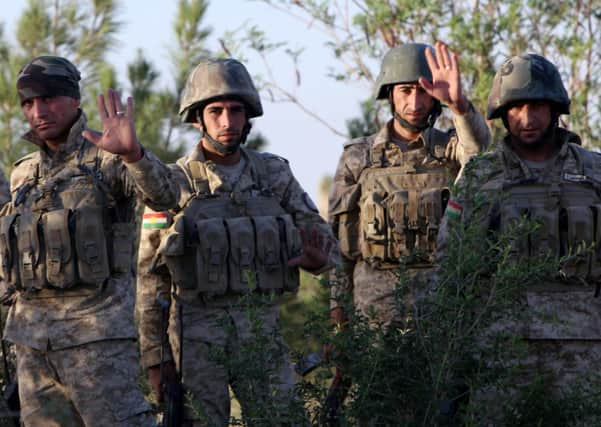Petroceltic suspend Kurdistan operations


The Irish firm, which merged with Edinburgh-based Melrose Resources in 2012, said: “In conjunction with Hess Middle East New Ventures, our partner and the operator of our exploration activities in the Kurdistan region of Iraq, we have been closely monitoring recent events in the region.
“While these developments have not directly impacted our exploration activities to date, in line with other operators in the region it has been decided, as a precautionary measure, to temporarily secure and suspend operations and to evacuate non-essential personnel.”
Advertisement
Hide AdAdvertisement
Hide AdThe move includes the cancellation of plans to drill an exploratory well and comes just weeks after Petroceltic got the green light from shareholders to raise $100 million (£60m) with an equity placing aimed at accelerating its exploration programme in Kurdistan.
The company’s pull-out comes despite US air strikes at the weekend aimed at bolstering Kurdish forces trying to contain the threat from Islamic State militants.
A number of other oil companies operating in Iraqi Kurdistan have already withdrawn staff, with many announcing pull-outs on Friday as the militants approached the regional capital Arbil.
London-listed Afren and Toronto-listed Oryx cut production at oilfields closest to the fighting. Genel, led by ex-BP boss Tony Hayward and one of the biggest producers in Iraqi Kurdistan, said it was withdrawing “non-essential” workers but maintaining the combined 230,000 barrel per day output from its large Taq Taq and Tawke fields.
Total Kurdish production of about 360,000 barrels per day has been cut by less than 5,000 barrels so far, but there are concerns that this could increase.
Companies focused on the region, which was previously viewed as a stable semi-autonomous entity with considerable potential for both oil developments and business including tourism, have seen their shares come under pressure since the Islamic militants made shock gains against Kurdish forces early last week. Some of the biggest oil operators in the region lost almost a quarter of their market value last week.
US air strikes have since halted the militants’ advance. However, experts said that while the strikes may help in the defence of major cities, energy infrastructure remains at great risk.
Ayham Kamel, of the Eurasia Group consultancy, said: “The fact that most energy assets are located in the western part of the Kurdish region, and therefore closer to Islamic State-controlled regions, presents a sustained threat to these developments,” said Eurasia’s Middle East and North Africa director.
Advertisement
Hide AdAdvertisement
Hide AdMr Kamel added: “Clashes with the Islamic State close to the Kalak refinery and the Kurmala-Fishkhabour oil export pipeline significantly increase risks to Kurdish energy infrastructure and potential expansion plans.”